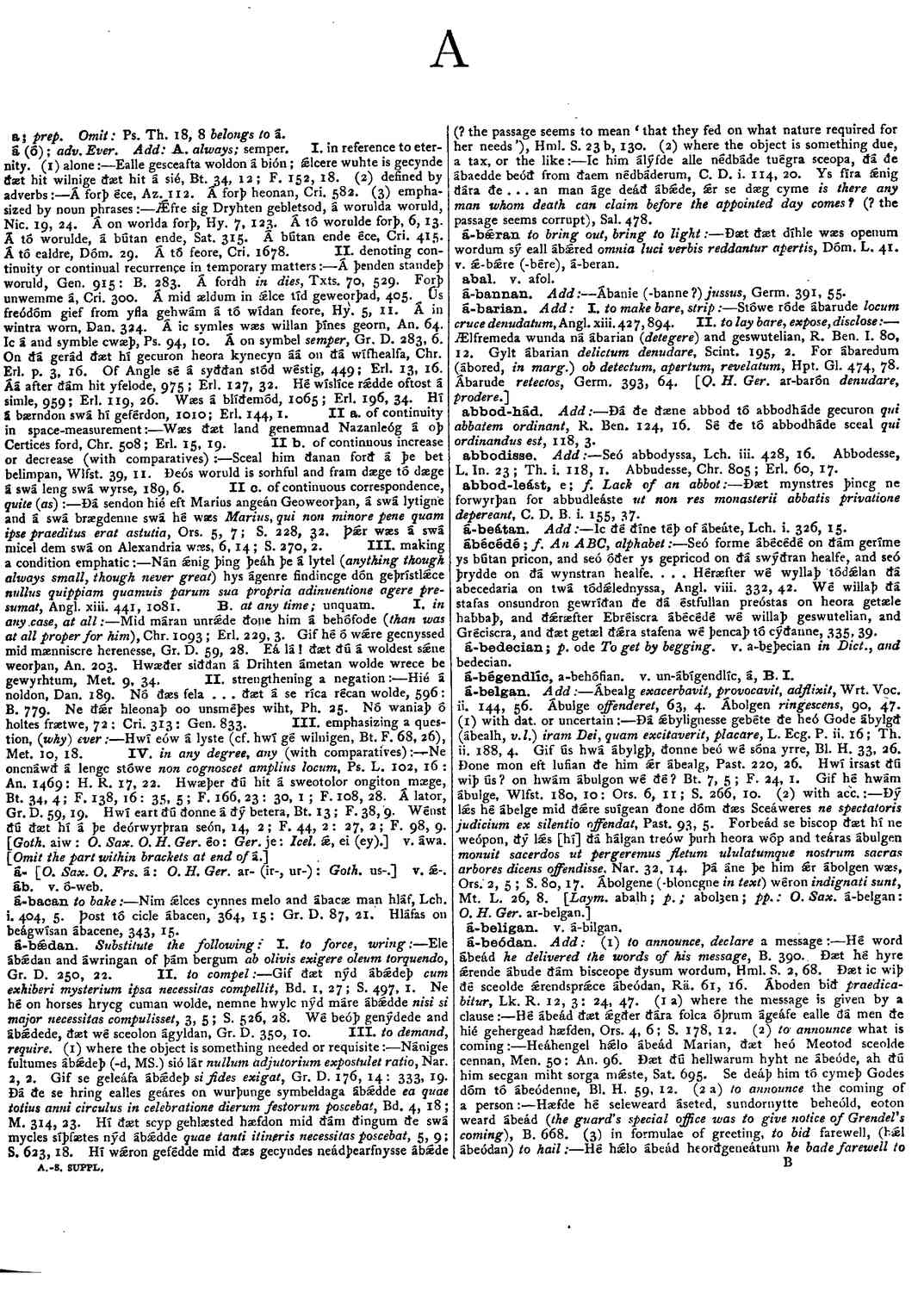á-beódan
-
Hé word ábeád
he delivered the words of his message,
- B. 390.
-
Ðæt hé hyre ǽrende ábude ðám bisceope ðysum wordum,
- Hml. S. 2, 68.
-
Ðæt ic wiþ ðé sceolde ǽrendsprǽce ábeódan,
- Räi. 61, 16.
-
Áboden bið
praedicabitur
,- Lk. R. 12, 3: 24, 47.
- (l a) where the message is given by a clause
Hé ábeád þæt ǽgðer ðára folca óþrum ágeáfe ealle ðá men ðe hié gehergead hæfden,
- Ors. 4, 6; S. 178, 12.
-
Heáhengel hǽlo ábeád Marian, ðæt heó Meotod sceolde cennan,
- Men. 50: An. 96.
-
Ðæt ðú hellwarum hyht ne ábeóde, ah ðú him secgan miht sorga mǽste,
- Sat. 695.
-
Se deáþ him tó cymeþ Godes dóm tó ábeódenne, Bl. H. 59, 12. (2 a)
to announce the coming of a person :-- Hæfde hé seleweard áseted, sundornytte beheóld, eoton weard ábeád (the guard's special office was to give notice of Grendel's coming ),
- B. 668.
-
Hé hǽlo ábeád heorðgeneátum
he bade farewell to his comrades
,- B. 2418.
-
Héht hé Elenan hǽl ábeódan
he sent salutation to Elene
,- El. 1004.
-
Nú ic dé cyst ábeád
lo! I have offered you a choice
,- Gen. 1919.
-
Fela gé mé earda áboden habbaþ,
- Gú. 280.
-
Hé up lócade, swá se ár ábeád,
- El. 87 : Gen. 1362.
- Ábeád cyning þegnum sínum, ðæt hié . . . , 1869.
-
Ðé ábeódan hét hé, ðæt ðú . . . ,
- Gú. 1348.
-
Engel stefne ábeád, hét ðæt treów ceorfan,
- Dan. 510.
-
Hé fyrde hét út ábeódan,
- Chr. 1091 ; Erl. 227, 33.
-
Ábeódende
eliciens (igniferas fulminum coruscationes
,- Ald. 62), Wrt. Voc. ii. 85, 46.
-
Bið geban micel and áboden þider eal Adames cnósl
omnes homines cogentur adesse
,- Dóm. L. 128.
Bosworth, Joseph. “á-beódan.” In An Anglo-Saxon Dictionary Online, edited by Thomas Northcote Toller, Christ Sean, and Ondřej Tichy. Prague: Faculty of Arts, Charles University, 2014. https://bosworthtoller.com/37322.
Checked: 0